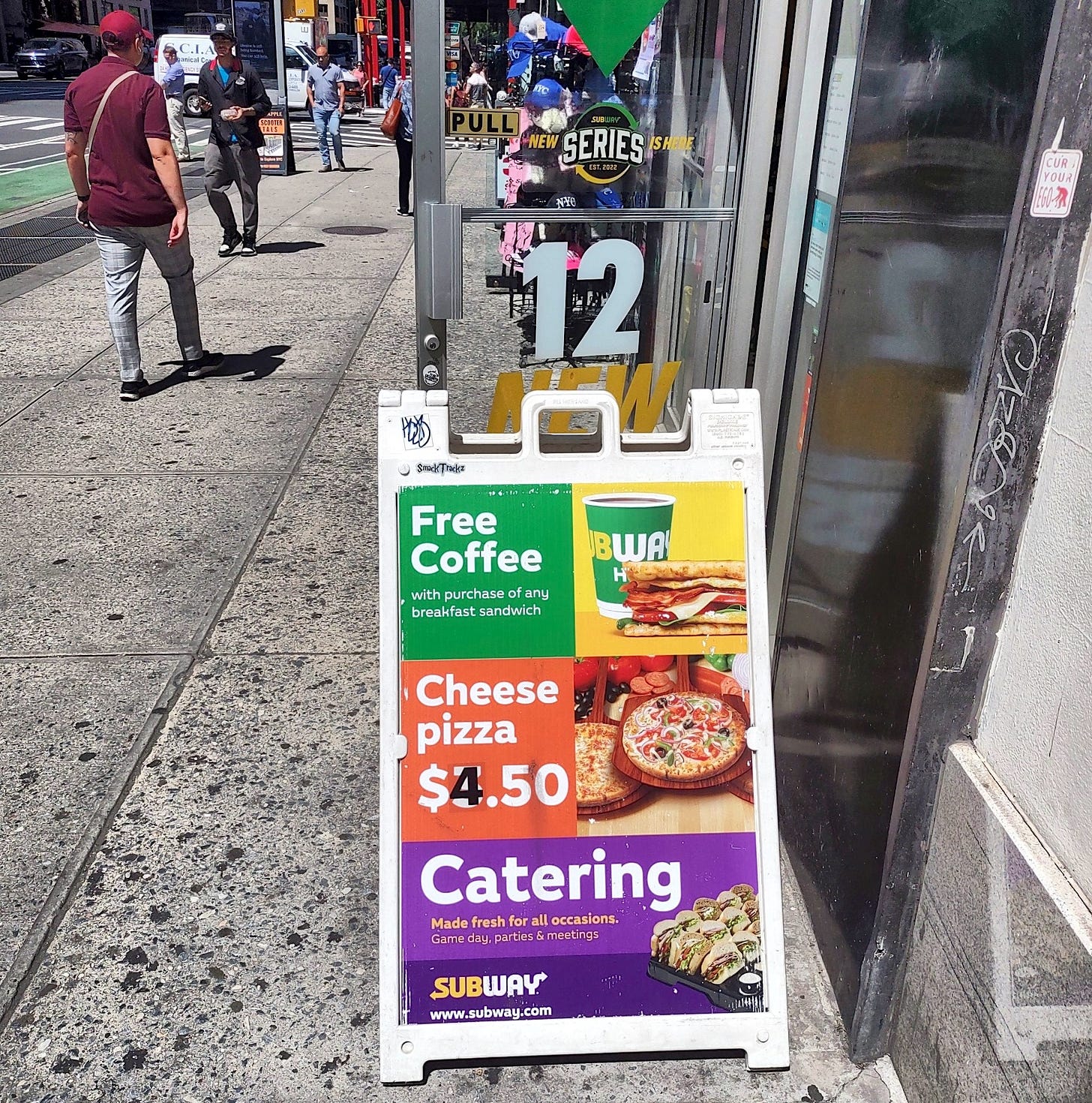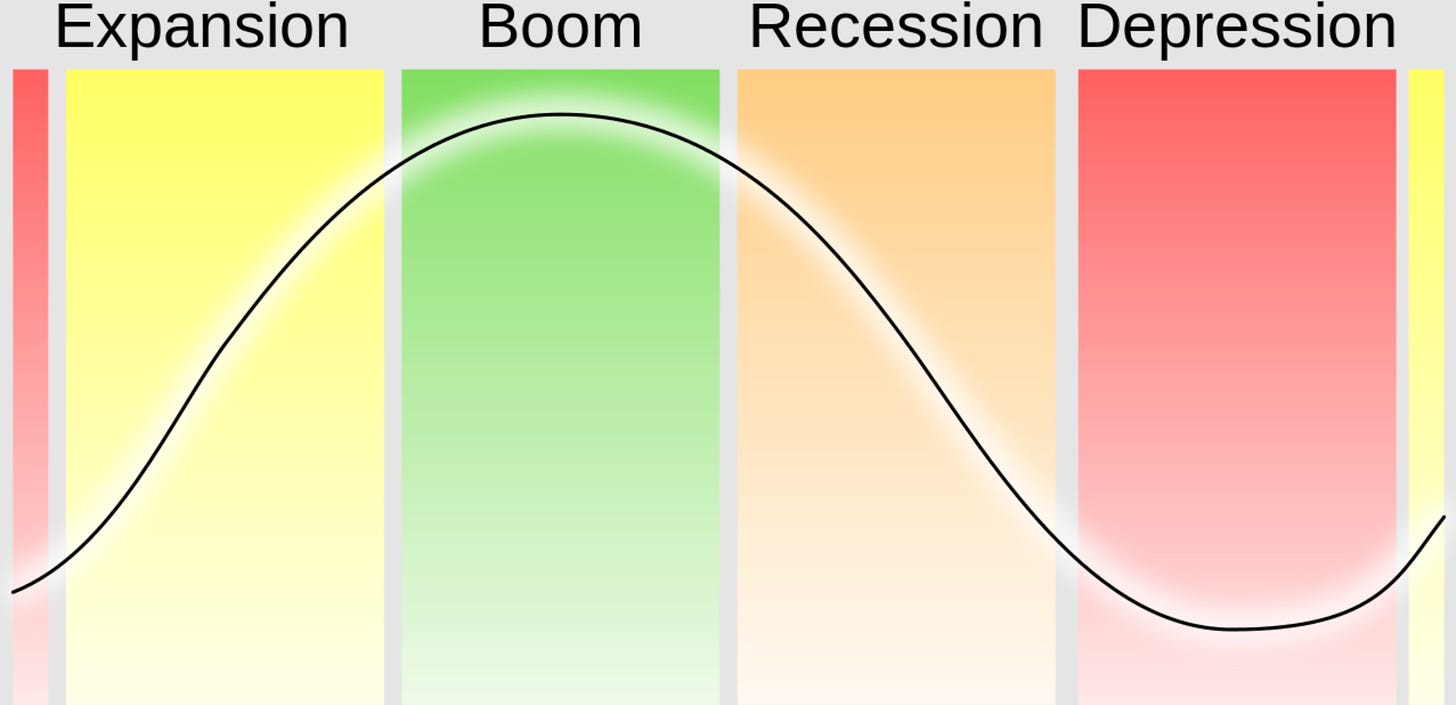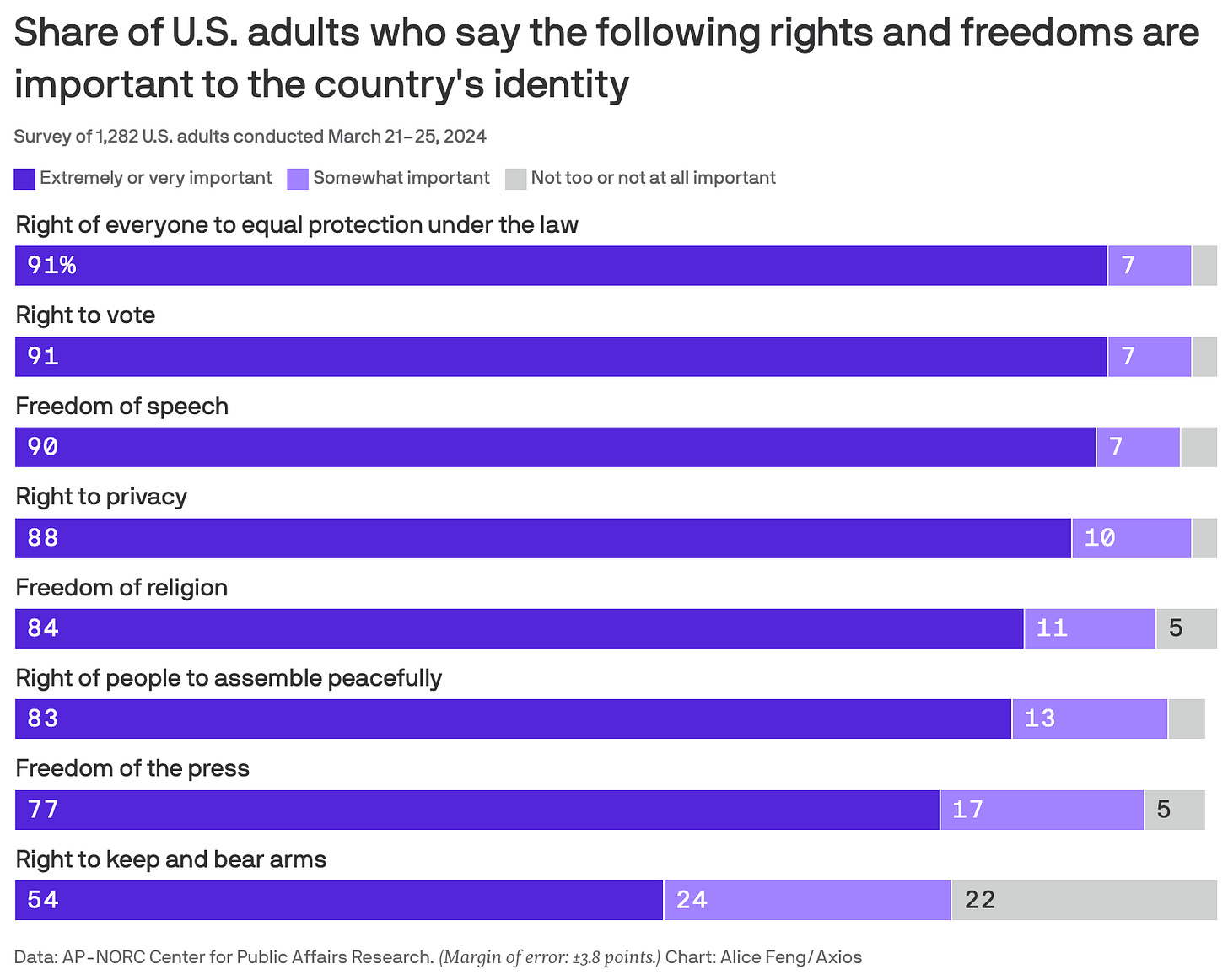Is it the economy? Or is it you?
BONUS: ‘America’s reality distortion machine’ & an RFK2 update
By most measures, the U.S. economy is doing well. After many months of ballooning prices, post-pandemic inflation is finally under control. In the 12 months through the end of February, inflation was at 3.2%, compared with 6% a year earlier.
Unemployment is at 3.8% and falling, and nearing its lowest rate in half a century. Real incomes are growing faster for those at the bottom than at the top. Growth in the gross domestic product accelerated last year, expanding 3.1% from a year earlier due to strong consumer spending and hiring.
So what exactly is the problem? Why are so many people down on the economy and why, as a matter of politics, do they blame President Biden?
For wisdom on matters economic, I often turn to Megan McArdle, a economics and finance columnist for the Washington Post. I usually agree with her analyses. That’s probably because, as characterized by David Brooks, McArdle and her ilk “start from broadly libertarian premises but do not apply them in a doctrinaire way.”
Yah, that’s pretty much me. Perhaps my inclination to believe McArdle is an example of the very confirmation bias I routinely complain about in others. I’m a capitalist who believes in markets, while acknowledging that sometimes the markets do not serve us well and thus need to be regulated. But I digress …
So why do so many people think the economy sucks? McArdle’s theory (free link here), postulates that by January 2021, well after the pandemic had already arrived, government relief programs helped low- and middle-income Americans, “including unemployment benefits generous enough that about 70 percent of recipients were making more than they had by working.”
Meanwhile, lower-income households increased their consumption, as middle-income households saved and paid down debt. When the world reopened, there was pent-up demand and, unbeknownst to most consumers at the time, it would create upward pressure on prices.
Everyone had a lot more money, but we weren’t actually producing more stuff, so consumers effectively got into bidding wars for the limited supply of goods and services. Then, a lot of their wealth was consumed by the resulting inflation.
And unfortunately, the only effective short-term tool the federal government has to combat inflation is to raise interest rates, which makes it more expensive to buy a house or car. Still, aside from the temporary post-pandemic inflation, Americans are in many ways objectively better off than they were three years ago.
Its also worth noting that Americans’ perception of the economy generally, and of inflation specifically, is often flat-out wrong. As Wall Street Journal economics commentator Greg Ip points out, in the Journal’s latest poll of swing states, 74% of respondents said inflation has moved in the wrong direction in the past year.

“This assessment, which holds across all seven states, is startling, sobering — and simply not true,” Ip wrote, continuing:
I’m not stating an opinion. This isn’t something on which reasonable people can disagree. If hard economic data count for anything, we can say unambiguously that inflation has moved in the right direction in the past year.
So the answer to why people think we have a horrible economy probably lies in impressions from what politicians are telling them, the news media consumed by the public and, even more likely, their social media feeds — which function as news media for many people and which brings us to the next topic of this post:
‘America’s reality distortion machine’
In a piece published this morning, Jim VandeHei and Mike Allen of Axios examine how we might be “deceived” into thinking we’re more divided and dysfunctional than we actually are. The writers acknowledge that there are divisions in this country — sometimes deep ones:
But on almost every topic of monthly outrage, it's a fringe view — or example — amplified by the loudest voices on social media and politicians driving it.
Then, in several rapid bullet points, VandeHei and Allen dispel some of the myths driving the divisions. To wit:
No, most Christians aren't white Christian nationalists who see Donald Trump as a God-like figure. Most are ignoring politics and wrestling with their faith.
No, most college professors aren't trying to silence conservatives or turn kids into liberal activists. Most are teaching math, or physics, or biology.
America has always been divided but what has changed “is political activism invading everything, from football to beer to Target. Here, too, most normal people just drink, watch football, and shop — without giving a damn about the politics of it all. This fringe nonsense plays out in the social media bubble before oozing into our lives.”
To buttress their theory, VandeHei and Allen cite a new AP and the NORC Center for Public Affairs Research survey listing important rights and freedoms we enjoy and how important Americans think they are:
There is a remarkable amount of agreement in principal here. And of course the devil is always in the details. Maybe if we looked away from our screens more often, or if we stopped playing keyboard warrior in our spare time, and just started talking to each other over the back fence, then we would be less inclined to assume the worst of each other.
Just a thought …
See video below of VandeHei discussing the Axios piece this morning on MSNBC:
Update on last week’s column on RFK2
We have an update on last week’s column about RFK2 and which party’s chances of winning the 2024 presidential election his candidacy harms the most. In that column, I came away concluding he might hurt Trump more than Biden. Now I’m starting to feel even more comfortable in that assessment — and it appears that some Trump supporters are starting to agree.
As Marc Caputo observed this morning in The Bulwark, RFK2’s campaign rhetoric appeals to a certain crowd:
Vaccine mandates are a form of Nazism. Joe Biden is a threat to democracy. The January 6th prosecutions might be politically motivated.
For several months now, the conventional wisdom was that Kennedy peeled more votes away from Biden, but judging from the Trump campaign’s recent actions, RFK2 is making them nervous enough to label the independent candidate a “radical Democrat” whose record on the environment, taxes and abortion rights make him an extremist:
One Republican group active on social media tells The Bulwark it’s making plans to launch a campaign called “Radical Fucking Kennedy” to spread the word of RFK’s liberal past.
The Trump campaign’s internal polling obviously suggests the conventional wisdom that RFK2 benefits Trump or holds him harmless no longer holds.
Oh, and the new ad campaign “Radical Fucking Kennedy” will cast the pet name I’ve given Mr. Kennedy in a very different light!







As for the issue of "America's reality distortion machine," it reminds me of a quote from a former Facebook engineer. It's included in a book I'm currently reading by former NY Times reporter Max Fisher ("The Chaos Machine: The Inside Story of How Social Media Rewired Our Minds and Our World"):
"One reason I think it is particularly important for us to talk about [the impact of social media] now is that we may be the last generation that can remember life before."
Seems like people of a certain age (you know, like you and me, Terry!) can still provide essential perspective to the current information (and misinformation) deluge!
Oh good!!!!